Instant Skill Matrices
for Consultancies
One consultancy manager went from keeping track of 100 consultant's skills in an Excel sheet, to automatic counting of skills, people and levels in one single click with Quadim.
.png)
Save time, reduce costs & increase competitiveness
A big part of a consultancy's job is to ensure competitiveness and profitability of the consultants. This is done through their skills. To attract the best consultants, the consultancies have to ensure attractive customers. This casestudy is highlighting how a consultancy gained live, up to date data on skills, levels, progress and gaps.
Better overview & faster mapping
Better quality competence data
Higher efficiency when creating skill matrices
Learn how a data-driven approach makes life easy for sales.
"Keeping track of skills, levels and capabilities is a massive pain point"
Loreen oversees a team of 100 consultants and her main task is to make sure they have the necessary qualifications. It's her responsibility to ensure that her consultants possess the skills required by the market or customers. Unfortunately, the current CV system doesn't provide reliable data on the actual skill levels of her department. As a result, Loreen maintains an Excel sheet to keep track of skills. Identifying and planning for skill gaps is a crucial aspect of her role.
"I am often asked by others in the organization if I have such and such skills available. I need the excel sheet to both keep track and overview and to identify gaps. I also use them when assisting in public sector bids which requires us to deliver skill matrices which mean I am required to know the level of someones skills."


"It took us 4 days to find out how many of our consultants had azure competence"
Delivering public sector bids is a significant team effort, particularly for larger consultancies with more personnel to manage. The public sector has specific skill criteria, so each bid requires manual effort. For instance, just one section, Azure, consists of 30 skill requirements that need to be addressed. The complexity increases with the addition of numerous new recruits each year.
"Considering we also hire about 200 young talents from the universities who are rapidly gaining skills, skill mapping and overview is difficult and remains pretty much a manual process."
"Skill mapping together with our partners is another level of complexity all together"
Delivering bids for a single consultancy is already complex, but the current market practice involves submitting bids in collaboration with multiple partner companies. This presents an additional challenge for consultancies, as they need to prove that they have 10-40 expert consultants who meet the requirements.
"To deliver successful bids with others, we are having to deliver CVs with the same templates and we have to tweak each individual CV to ensure that they answer the required skill requirements. We would do anything for this process to be easier."

"Measuring success in skill building initiatives"
The technical directors play a key role in guiding and developing skills within the organization. They oversee training, certifications, mentorships, conferences, and skill-sharing events. However, accurately measuring progress and assessing the impact on budgets for individuals, departments, teams, and customers is quite challenging.
"I aspire to guide, inspire and set the general technical direction of the company. I am responsible for skill building budgets and initiatives. I make choices on how to ensure the organization is building the right skills in the right areas to ensure competititiveness in both what we sell to the market and the exciting assignments we provide for the consultants."
Enjoying easy overview
Since implementing Quadim, Loreen and Brad's daily tasks have become significantly simpler. They no longer rely on Excel as the platform provides instant access to updated skill information. Loreen has organised her department as a sub-network, allowing her to establish various Key Competence Indicators (KCIs) for the teams. Additionally, she can identify consultants who haven't updated their skills scores and remind them of the importance of efficiency.
"It is amazing that the system automatically updates when people start and quit. Saves me so much time and effort I previously spent keeping control of my excel sheets."
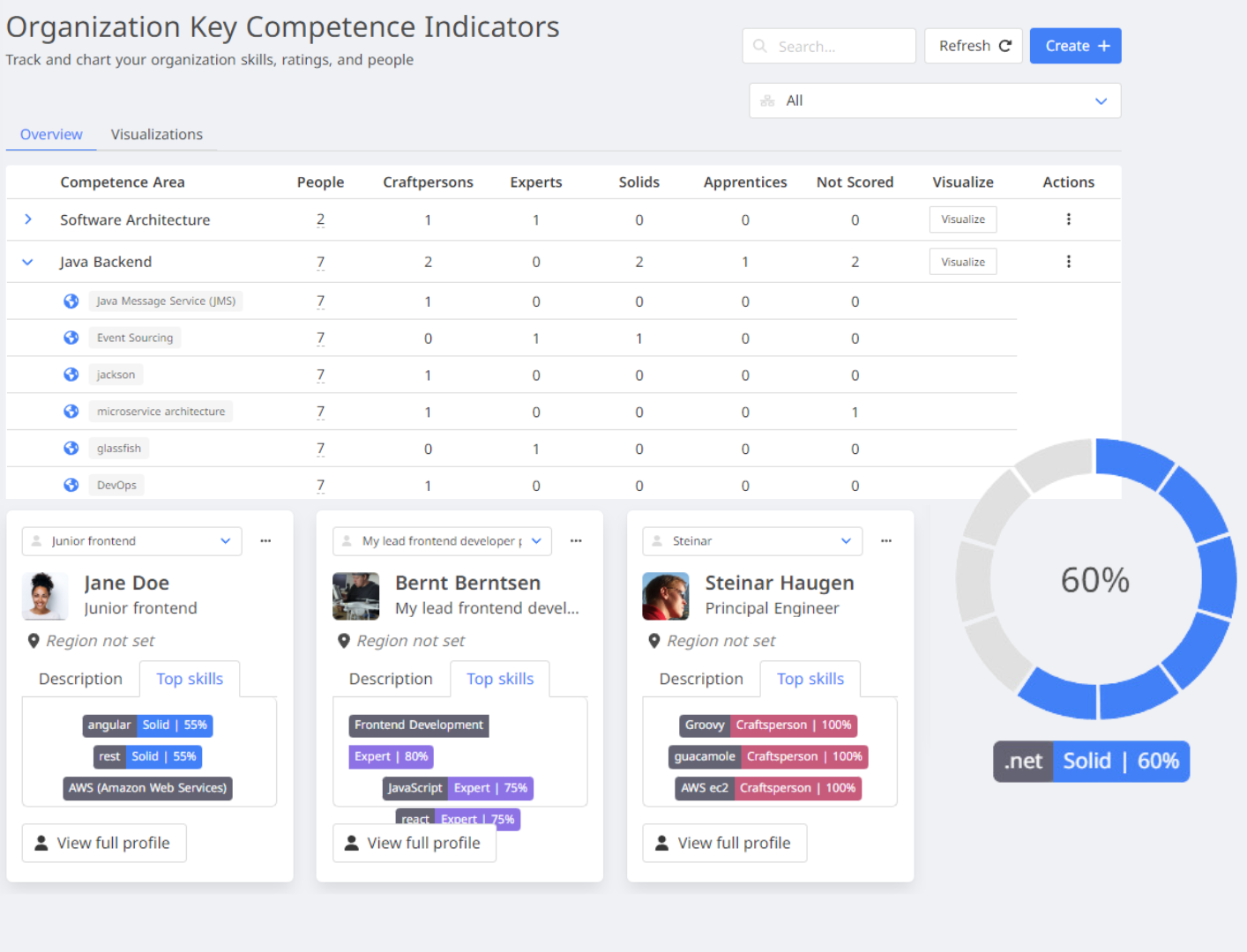
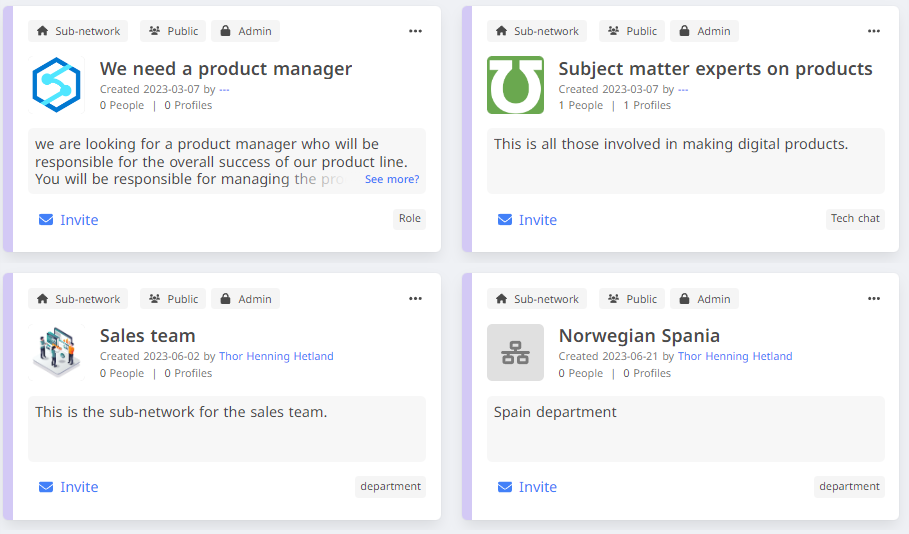
Organise consultancy using sub-networks
Create teams, departments, subject matter networks or use it for internal roles and mobility, customer projects or bids. With a tagging system, sub-network is the flexible way to organise the business. The open sub-networks are available for organization to self organise and joining.
For Brad that means that he can create a sub-network and invite/add all the relevant consultants he want to offer to a public sector bid and then set up KCI. This ensures that the consultants offered match the skill requirement by the customer. Smart, easy and efficient.
Build precise skill definitions
Customers, particularly in the public sector, have their own skill definitions and technical requirements, which may differ slightly from the consultancy's definitions. With the organization's skill definition library, Brad can now create various skill definitions, including those specific to his bids. The best part is that the data structure allows him to perform calculations across similar skill definitions.
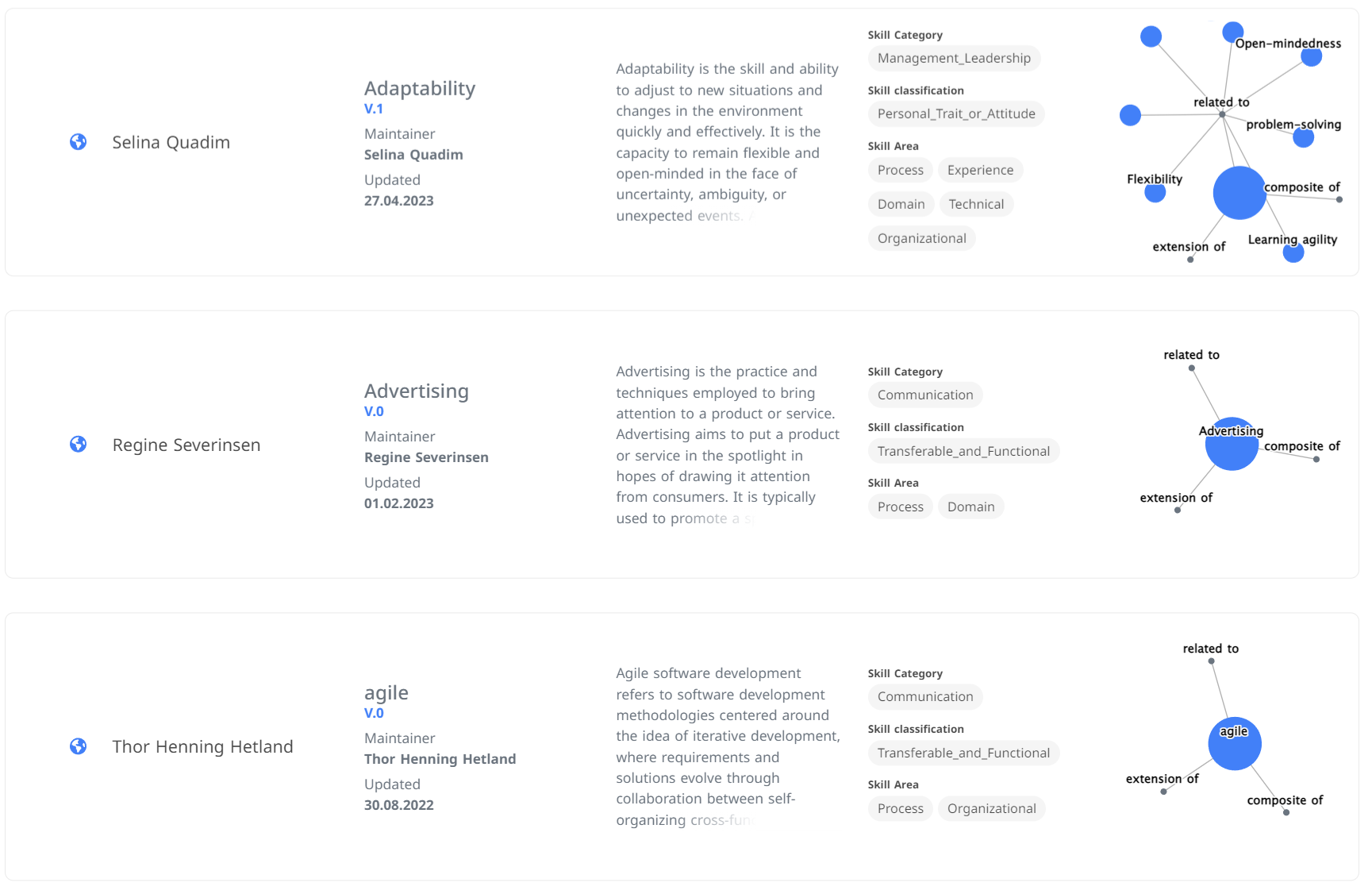
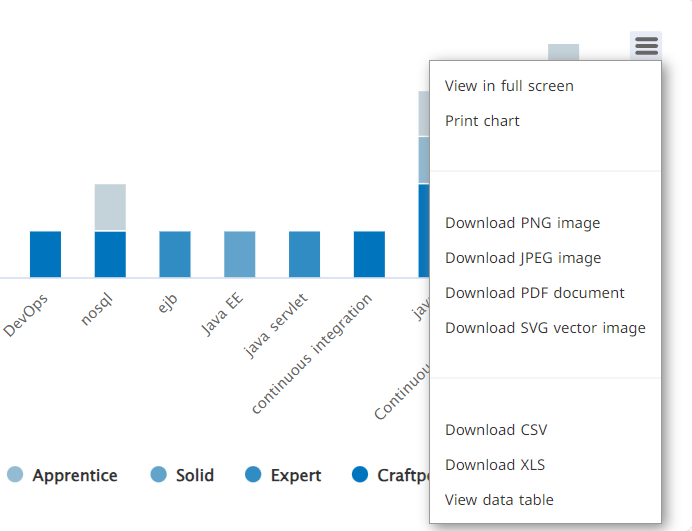
Demonstrate the skill level to your customers
Tip! Download the KCIs into a png or document and wow the customer with a detailed visualisation of the skill level & matrices they asked for together with the CVs.
Create a common network
Allow consultants to share their profiles into it.
Search & get overview
Create a sub-network for the new bid. Start inviting in the relevant people.
Use sub-network and KCI
Set-up the KCIs and see how strong or identify gaps in the bid.
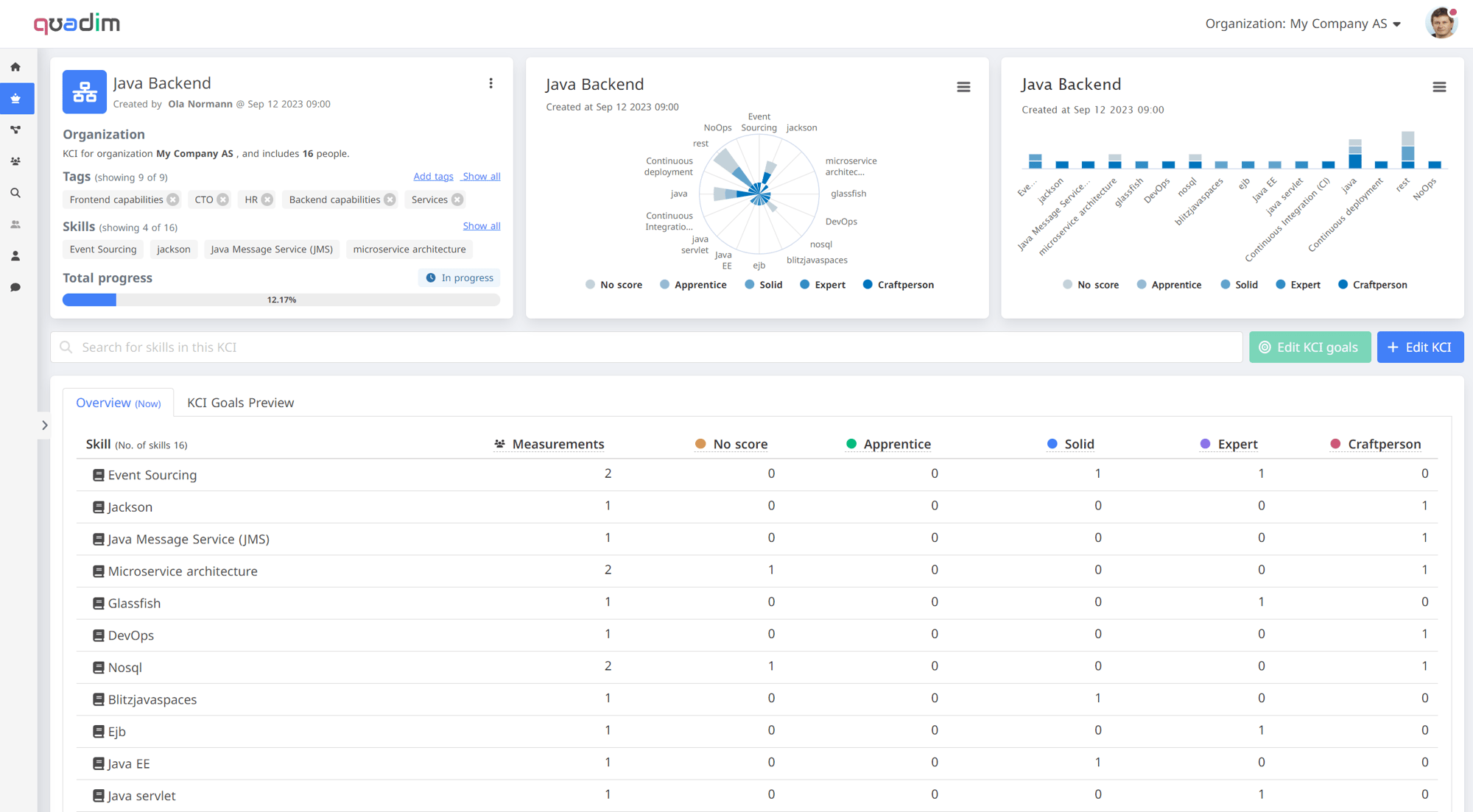
Rob can track progress over time & so can the consultants
Quadim is a data-driven system that enables the measurement of a consultant's skill level. Through personal competence goals, each consultant can strive to improve in specific areas. Progress is achieved by gaining real experiences and receiving feedback from qualified team members.
Rob can assess the entire organization and identify skill gaps, while individual consultants now have a straightforward method to ensure they are developing the appropriate skill sets.
The fast way to create, edit and export profiles
Consultants can swiftly create new profiles tailored to specific customers, bids, or other requirements. The platform supports multiple profiles, allowing for easy deletion of irrelevant elements and experiences through bulk actions. Editing experiences enables the creation of different versions that can be reused for other profiles. It's a simple and efficient process, and the profiles can be exported into the desired template format.
.png)